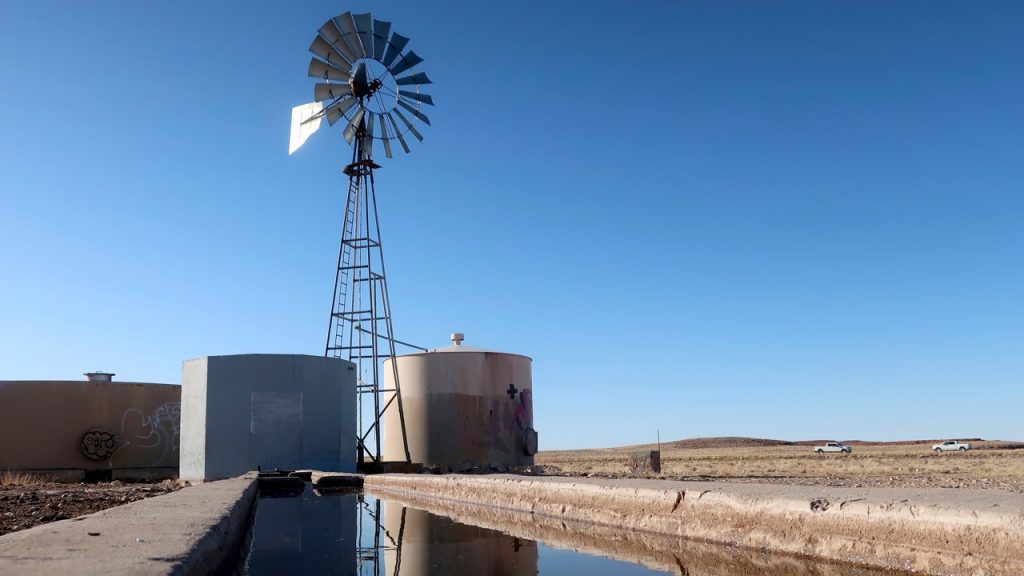A proposed water rights settlement for three Native American tribes has been introduced in the Navajo Nation Council. This agreement, which is larger than any previous Congressional agreements, is the first step in a long process that will culminate with approval from Congress. The tribes involved are the Navajo, Hopi, and San Juan Southern Paiute, who have faced challenges related to climate change, the coronavirus pandemic, and increased demand for water from cities like Phoenix and Las Vegas. They are seeking water from various sources to meet their communities’ needs.
Nearly one-third of homes on the Navajo Nation lack access to running water, a situation mirrored in many Hopi homes. The San Juan Southern Paiute tribe is also facing similar challenges. The tribe is seeking a settlement with Congress that would provide guaranteed water deliveries and also approve a treaty it signed with the Navajo Nation in 2000. The settlement would bring economic opportunities to tribal members, offering hope and pride to their people.
Without a settlement, the tribes would be left to navigate the court system for any water claims, as the federal government has not been bound by treaties in the past to secure water for the Navajo Nation. The Navajo Nation, with the largest land base of any federally recognized tribe, has the opportunity to secure water rights that are essential for their future. The cost of the settlement is over $5 billion, with a significant portion earmarked for a pipeline from Lake Powell to tribal communities in remote areas.
The Navajo Nation has already settled its water claims in New Mexico and Utah and is also pursuing two smaller settlements in New Mexico. Arizona, part of the Lower Basin of the Colorado River, has its unique challenges and allocations in the Upper Basin. In the settlement terms, Navajo and Hopi would have access to water from both the Upper and Lower Basins of the Colorado River. This would help ensure a steady water supply for the tribes as Arizona faces water shortages and cuts in the future.
The settlement includes water rights from the Colorado River and the Little Colorado River, totaling about 40,780 acre-feet annually for the Navajo Nation. An acre-foot of water can serve two to three U.S. households annually. The agreement also grants the tribes the right to lease water within Arizona, potentially providing additional revenue. The tribes have come close to settlements in the past, and this time they are undertaking a public education campaign to gain support and inform tribal members of the importance of water rights.
Community meetings have been held to explain the settlement terms and their significance for the tribes. The public education campaign has focused on the role of water in the tribes’ creation stories, their ceremonies, and the impact on their daily lives. The tribes are working towards reaching an agreement that will not only secure essential water rights for their communities but also bring economic opportunities and stability for future generations.


